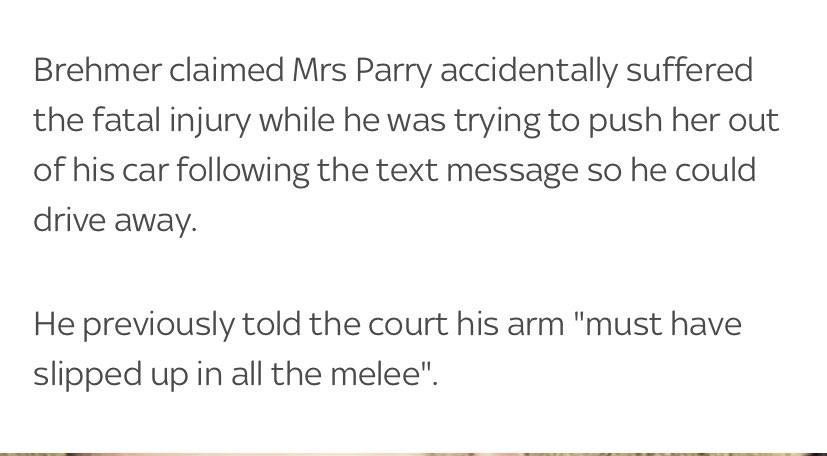
Quick [THREAD] on the legal issues in this awful case, in light of various comments floating around.
theboltonnews.co.uk/news/18920798.…
theboltonnews.co.uk/news/18920798.…
The defendant in this case was charged with murder.
Murder, in English & Welsh law, is where somebody unlawfully (ie not in self-defence or for some other lawful reason) kills another person, intending to kill or cause really serious harm.
Murder, in English & Welsh law, is where somebody unlawfully (ie not in self-defence or for some other lawful reason) kills another person, intending to kill or cause really serious harm.
The facts are well-known (and available in this link). On the face of it, this looks like murder. Unlawful killing with apparent intention to kill.
However.
There are certain defences that can arise. One such defence is “diminished responsibility”.
theboltonnews.co.uk/news/18920798.…
However.
There are certain defences that can arise. One such defence is “diminished responsibility”.
theboltonnews.co.uk/news/18920798.…
Diminished responsibility is a “partial defence”. That means that, if it succeeds, a defendant is not guilty of murder, but guilty of manslaughter. The significance is in the sentence - murder carries mandatory life imprisonment, manslaughter does not.
So what is diminished responsibility?
It is set out in law.
The first question is whether the defendant “was suffering from an abnormality of mental functioning” at the time of the offence.
In this case, the Defendant was a paranoid schizophrenic. That would meet the criteria.
It is set out in law.
The first question is whether the defendant “was suffering from an abnormality of mental functioning” at the time of the offence.
In this case, the Defendant was a paranoid schizophrenic. That would meet the criteria.
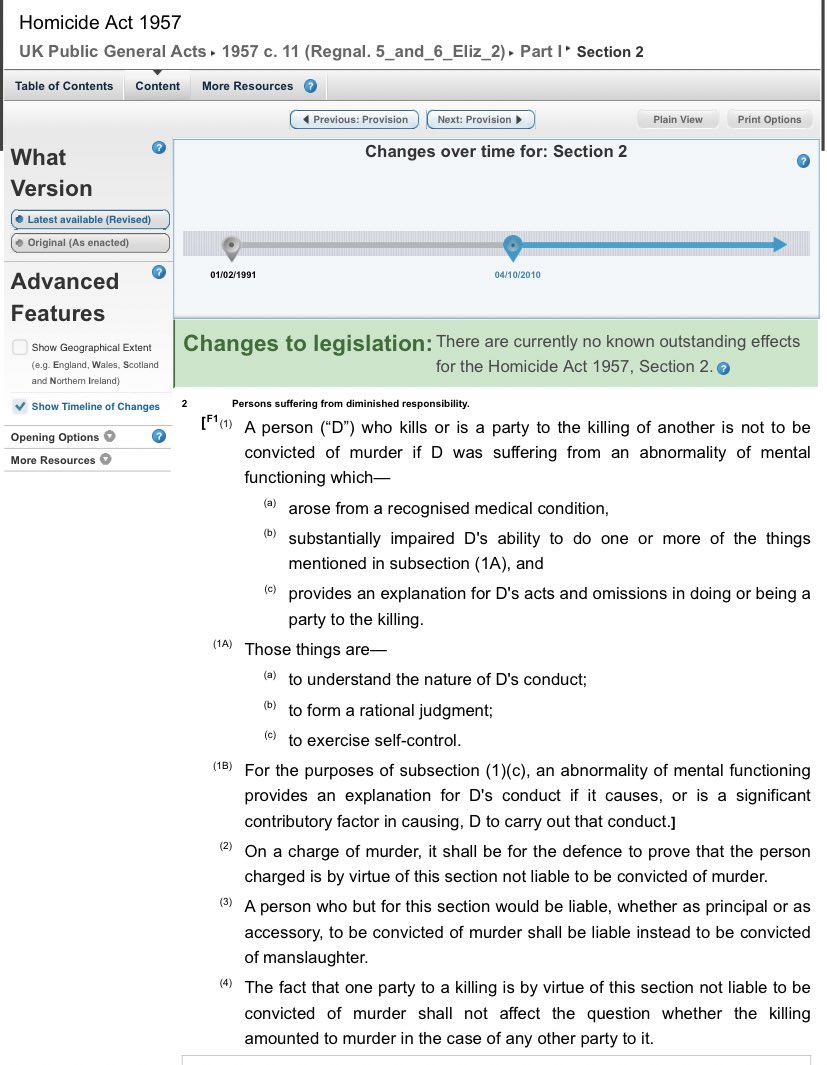
The next question is whether that “abnormality” had certain features, namely:
- arose from a recognised medical condition
- provides an explanation for the defendant’s acts
- substantially impaired the defendant’s ability to do one or more of the things in subsection 1A.
- arose from a recognised medical condition
- provides an explanation for the defendant’s acts
- substantially impaired the defendant’s ability to do one or more of the things in subsection 1A.
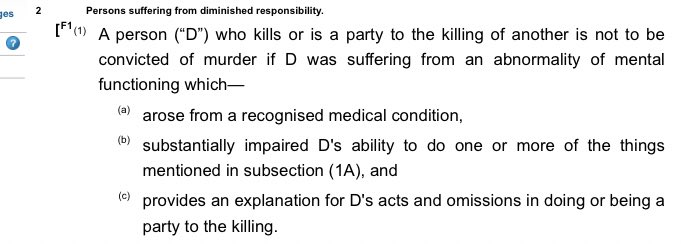
So what does subsection 1A say?
The defendant must be substantially impaired in his ability to:
- understand the nature of his conduct; OR
- form a rational judgment; OR
- exercise self-control
The defendant must be substantially impaired in his ability to:
- understand the nature of his conduct; OR
- form a rational judgment; OR
- exercise self-control
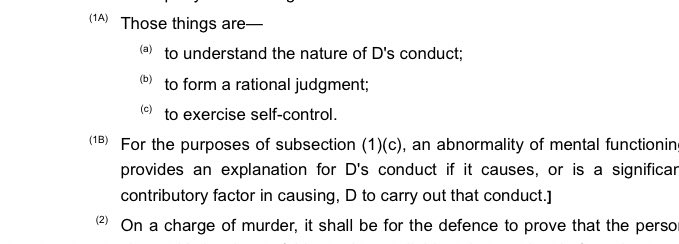
An important point is that the burden to prove the defence is on the defendant. However it’s not the same standard as the prosecution generally has (“beyond reasonable doubt” or making a jury “sure”) - the defendant only has to prove the defence on the balance of probabilities. 

If the defence is proved on the balance of probabilities (ie the jury think it is *more likely than not* to be right), the defendant must be acquitted of murder and convicted of manslaughter.
So what happened in Emily Jones’ case?
Well this excellent report from @TheBoltonNews has important detail.
theboltonnews.co.uk/news/18920798.…
Well this excellent report from @TheBoltonNews has important detail.
theboltonnews.co.uk/news/18920798.…
The prosecution opened the case on the basis that they did not accept what the defence said about diminished responsibility.
However, then the psychiatric evidence was called.
And the thing about trials is that they are dynamic. Things can shift in an instant. So it proved.
However, then the psychiatric evidence was called.
And the thing about trials is that they are dynamic. Things can shift in an instant. So it proved.

The psychiatric evidence all supported the defence of diminished responsibility. This was clearly not what the prosecution were expecting, but experts are under a duty to give independent evidence. If their expert opinions change, they must say.
That seems to be what happened.

That seems to be what happened.
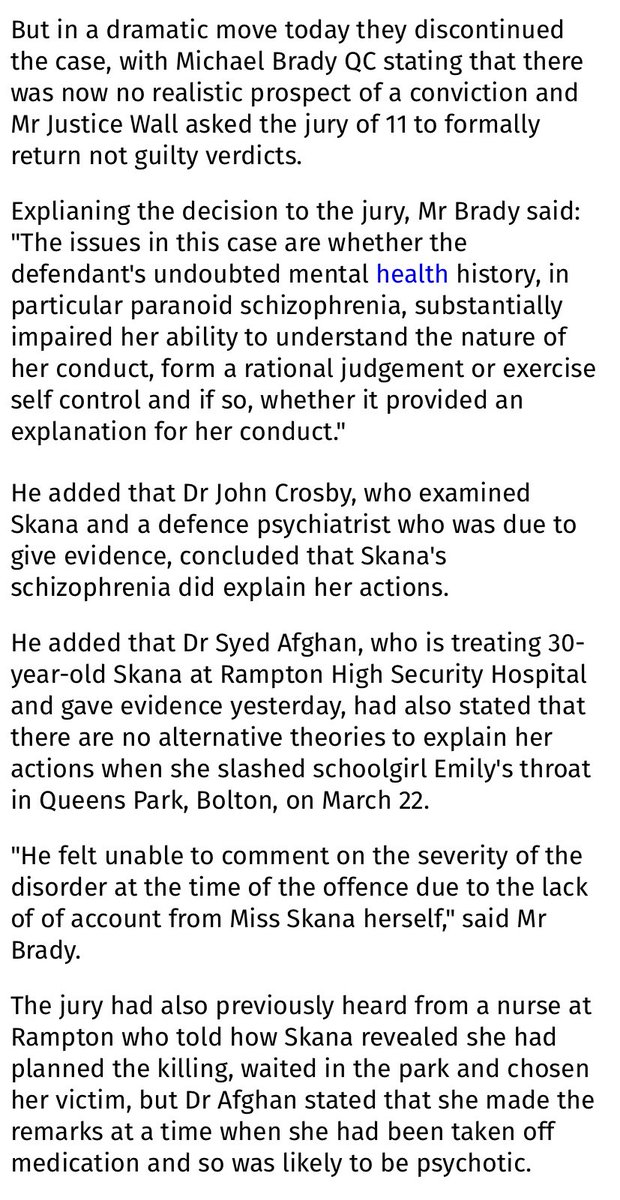
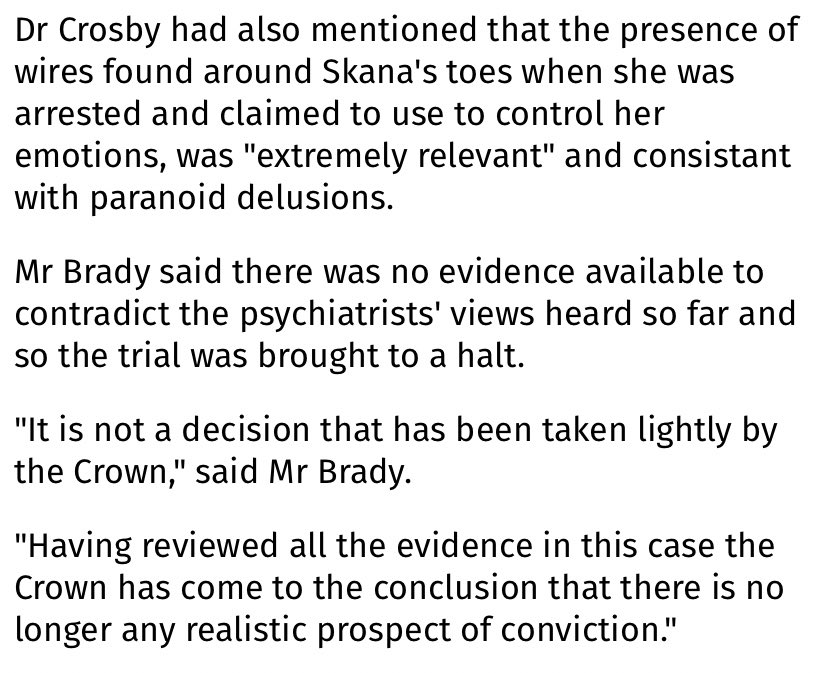
Where the evidence at trial seriously undermines the prosecution case, the prosecution should not carry on regardless. Prosecutors must continue to review the prospects of the case throughout. If there is no longer a realistic prospect of conviction, they must stop the case.
https://twitter.com/barristersecret/status/1333500523241148418
Those of us who did not hear the evidence are not best placed to form judgements on the correctness of such decisions. But one thing I can assure you: this decision will not have been taken lightly. It will have been subjected to intense scrutiny by the most experienced lawyers.
As for what happens next, the defendant will be sentenced. I would imagine the court will be considering a hospital order with restrictions, which will have the effect of detaining the defendant in hospital indefinitely until she is deemed safe to be released.
As for why there is such a defence in the first place, it’s because the law recognises that somebody whose actions are the product of a serious mental health condition is not as culpable as somebody without such a condition who acts knowingly and deliberately.
Is the law in this area perfect? Hell no, and much has been written about it.
But the general principle of dealing with people according to their culpability, and ensuring that the criminal law reflects that, is an important one.
But the general principle of dealing with people according to their culpability, and ensuring that the criminal law reflects that, is an important one.
• • •
Missing some Tweet in this thread? You can try to
force a refresh





